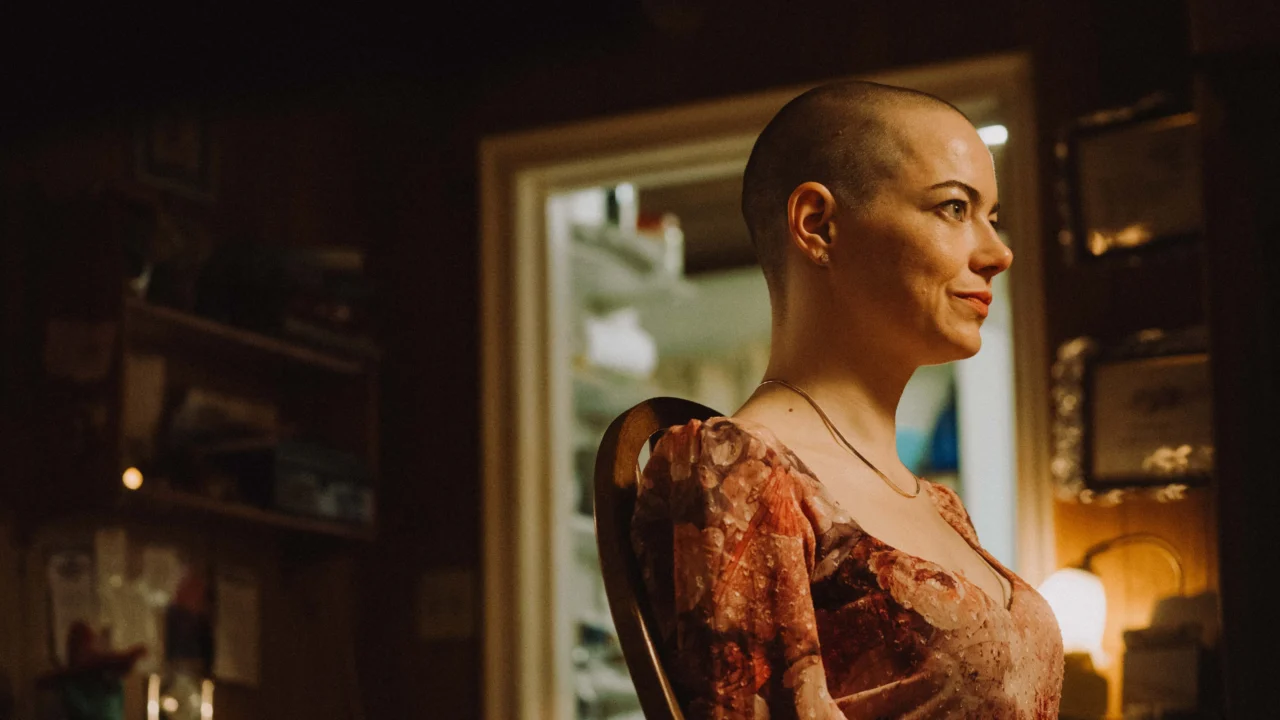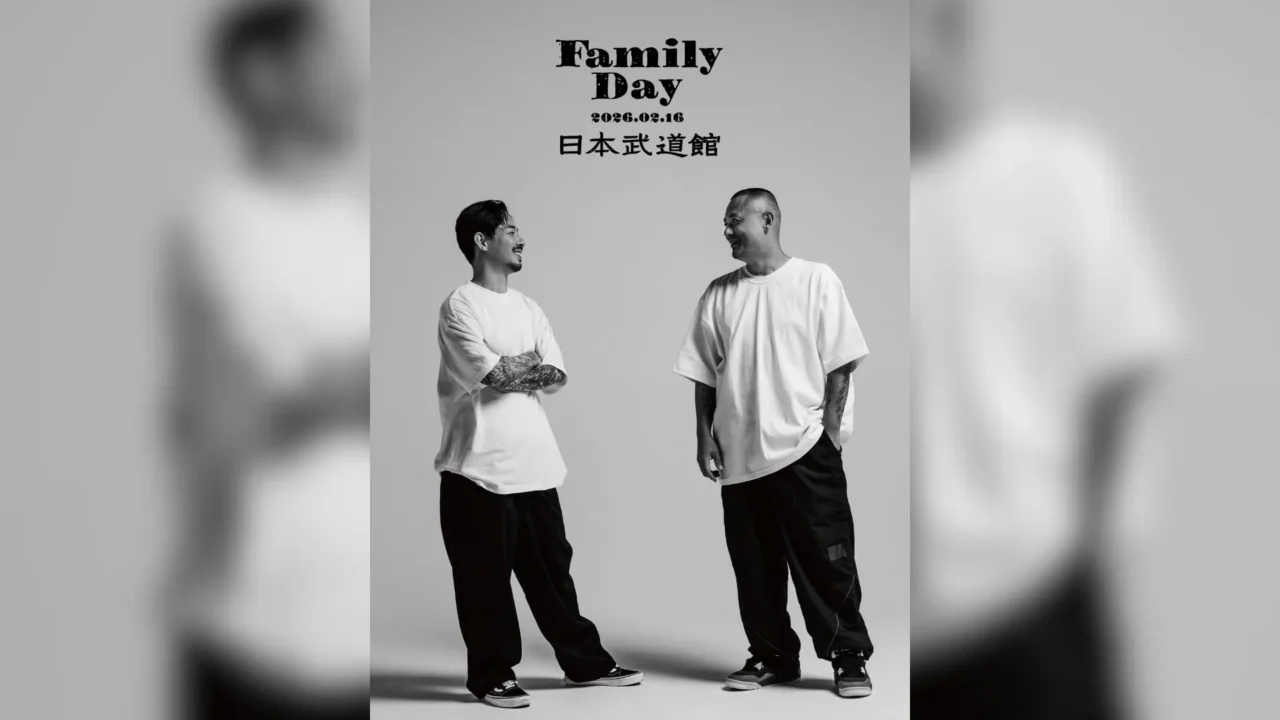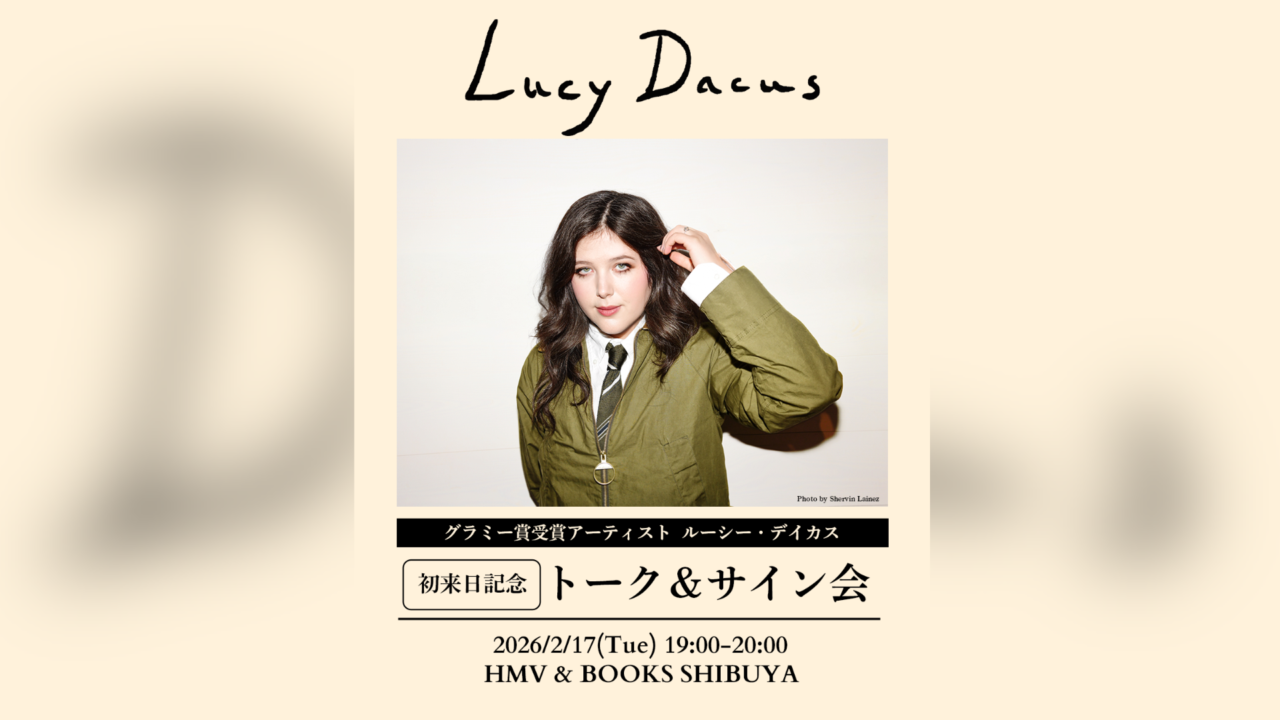INDEX
Skillful Integration of Existing Pop Songs
The music is also excellent. The original score is by Koreless, a Welsh producer known for his work with FKA twigs and others.
The track, which skillfully interweaves percussion and electronic sounds with environmental sounds, demonstrates a strong sense of real-time and fluidity as it gradually increases in dynamism from its restrained first half to its climax.
And the existing pop songs (albeit in a rather limited number) are also used to singular effect. The first thing the audience hears is the ringtone from contest organizer Renée’s smartphone: Pet Shop Boys’ “West End Girls” (1985). The song is a memorable one that director Hardiman used to listen to as he drove to his mother, a hairdresser.
Several existing songs played as the film reaches its climax are also very effective. First, during the “time travel” sequence at the end of the film, which is considered to be the most important in terms of the plot, “Stand On The Word” (1985) by the Jobbert Singers, a gospel disco classic also known as a garage classic, is played. (1985), a gospel disco classic also known as a garage classic.
The song is played after a moment of silence during the sequence in which Mosca’s lover Angel returns to the venue, heartbroken. Here, the audience will notice that the timeline of the story has been shifted significantly without their knowledge (while they are distracted by the lasting effect of the one-shot). A parallel universe where that atrocious incident never happened? Or ……? When the piano-driven intro is followed by a four-note beat and chorus, the atmosphere of the film is renewed in a stunning way. The use of music here is so vivid and ambitious.
The music has another trick up its sleeve. At first, the song is played as if it were underscore music, but as the scene progresses, we realize that it was prepared by a contestant hairdresser for his stage direction (i.e., the music “actually” played in the film, i.e., the source music). (i.e., the music “actually” played in the film = the source music).

The film then rolls into the final scene with a character’s confession, leading directly to the end credits, where the disco classic “Rock Your Baby,” a 1974 hit song by Miami soul singer George McCrea, is played. The song “Rock Your Baby” is played. As you listen to the familiar rhythm box sounds and soak up the afterglow of the film, suddenly the next song, the somewhat manic single “Don’t You Feel My Love” (1979) by the same George MacRae, is cut in to the mix. (Note that this is a disco-edited remix of the song.) Then the screen lights up again and the entire cast (dressed in lamé 1970s costumes) joins in a dance feast, as if it were the last scene of a musical.























